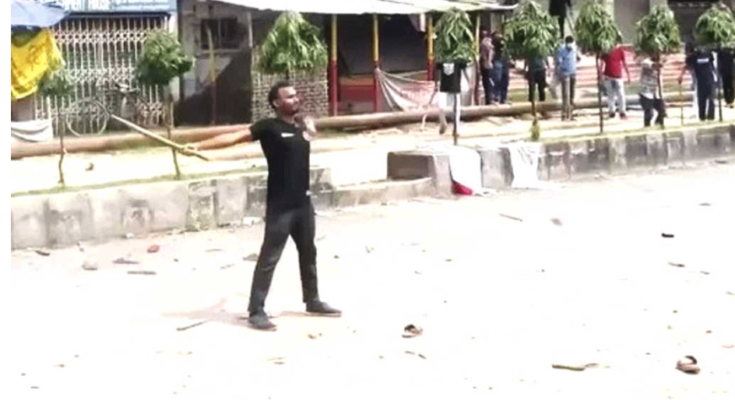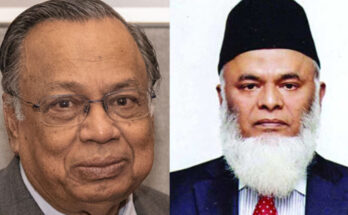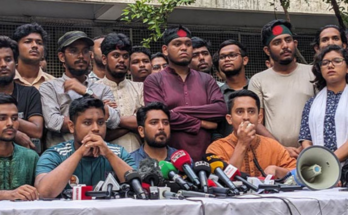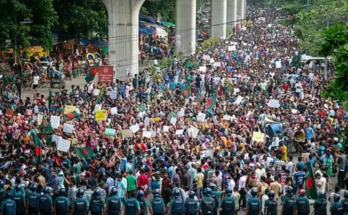Introduction
The recent suspension of two police officers in Rangpur, following the fatal shooting of Begum Rokeya University student Abu Saeed, has sparked significant discussion and controversy in Bangladesh. This blog post examines the details of the incident, the subsequent actions taken by the authorities, and the broader implications for justice and police accountability in the country.
Incident Details
On July 16, during a protest demanding quota reforms in public jobs, Abu Saeed, a student from the English Department at Begum Rokeya University, was shot dead by police in Rangpur. The incident, which was captured on video and widely shared on social media, led to an outcry and calls for justice. Saeed was known to be an active coordinator in the quota reform movement and hailed from Babunpur village in Pirganj upazila, Rangpur district.
Police Suspension
In response to the incident, Rangpur Metropolitan Police Commissioner Moniruzzaman confirmed the suspension of two police officers: Assistant Sub-Inspector Amir Hossain and Constable Sujan Chandra Roy. They were initially closed (relieved from duty) immediately after the incident. Following an investigation by a special committee, both officers were formally suspended on August 1.
Investigation and Future Actions
Deputy Commissioner of Police (DCP) Maruf Hossain stated that a full investigation report is awaited. Based on the findings and recommendations of the investigation committee, further actions will be taken against the suspended officers. This step is seen as a crucial move towards ensuring accountability and addressing the public’s demand for justice.
Social Media and Public Reaction
The video of Saeed’s shooting, which circulated widely on social media, ignited widespread condemnation and protests. Many criticized the excessive use of force by the police against peaceful protesters and demanded stringent actions against those responsible. The public response underscores the growing discontent with police brutality and the urgent need for reform in law enforcement practices.
Background of the Quota Reform Movement
The quota reform movement in Bangladesh has been a significant student-led protest demanding fair employment practices in public jobs. The movement seeks to abolish or reform the existing quota system, which reserves a significant percentage of government jobs for certain groups, arguing that it is discriminatory and unfair to meritorious candidates. The violent suppression of these protests has only intensified the calls for justice and equality.
Conclusion
The suspension of the two police officers involved in the shooting of Abu Saeed is a step towards addressing the immediate outrage and demand for accountability. However, it is crucial for the authorities to ensure a thorough and impartial investigation and take appropriate actions based on its findings. This incident highlights the broader issues of police violence and the need for systemic reforms in Bangladesh’s law enforcement agencies. Ensuring justice for Abu Saeed and other victims of police brutality is essential for restoring public trust and upholding the rule of law.





